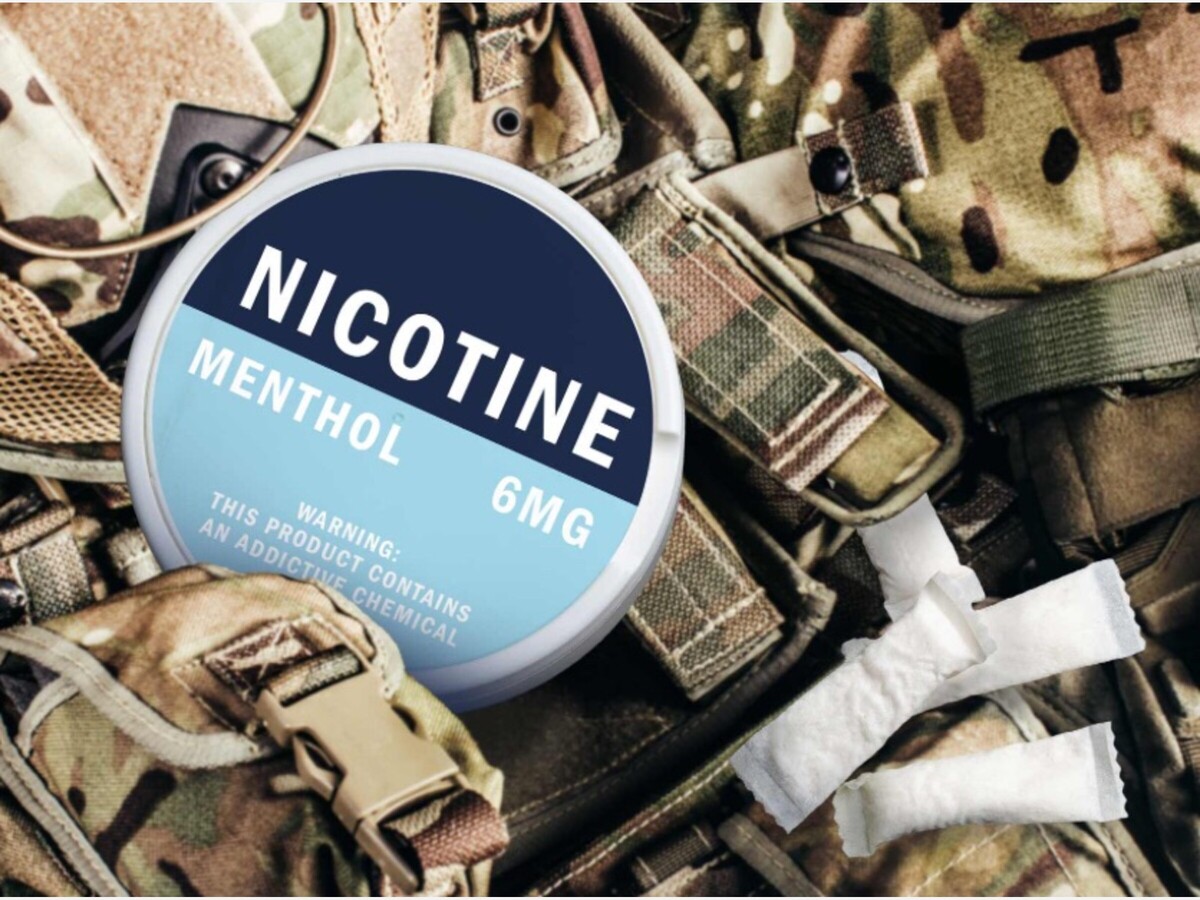Image


According to a study just released and conducted by Melissa A. Little, PhD, MPH; Kathryn M. Polaskey, MPH; Asal Pilehvari, PhD et with findings distributed via access article distribution under the terms of a CC-BY License; " Military personnel use tobacco at higher rates than the general population and experience more tobacco-related disparities, particularly after transitioning back into civilian life. For example, 9.4% of military personnel use smokeless tobacco compared with 3.5% of civilians.
However, little is known regarding use of nicotine pouches (microfiber sachets prefilled with dissolvable nicotine salt powder). While only 2.9% of adults reported lifetime use of nicotine pouches in 2022,3 US sales of these products increased 641% between 2019 and 2022, suggesting a need to investigate whether subgroups of the population are driving these sales. The current study explored nicotine pouch use among active-duty personnel to inform intervention efforts.
U.S. soldiers are 10 times more likely to use nicotine pouches than the average American adult, according to the new research study.
Researchers at the University of Virginia Cancer Center, University of North Carolina Lineberger Comprehensive Cancer Center and Fort Liberty Department of Public Health analyzed nicotine pouch use among 1,957 soldiers surveyed at Fort Liberty, North Carolina, in 2022 and 2023, according to a Wednesday release announcing the findings.
“Military personnel historically use tobacco and nicotine products at much higher rates than their civilian counterparts,” said Melissa Little, PhD, director of the Center for Nicotine and Tobacco Research at the University of Virginia School of Medicine. “Our results show that these same disparities are continuing with new and emerging products, like nicotine pouches.”
Other studies have shown higher tobacco use among military members. About 9% of troops use smokeless tobacco, or chew, as compared to nearly 4% of civilians, according to a separate 2012 study published by Oxford Academic in the “Nicotine and Tobacco Research” journal.
The Fort Liberty study found that pouch users were more likely to be unmarried, under age 30, white and male.
Nicotine pouch use grew in popularity during the survey period, as 24.7% of soldiers queried in 2023 reported using nicotine pouches compared with 20.2% in 2022. The highly addictive pouches have been linked to cardiovascular risks, lung and stomach problems, gum ulcers, oral health issues and other concerns, including nicotine’s ability to promote the growth of cancer.
Users were more likely to be younger, male, White, unmarried and users of other tobacco or nicotine products such as cigarettes, smokeless tobacco and vapes. Soldiers ages 30 and older were less likely to use nicotine pouches than soldiers ages 17 to 24. Survey participants with at least a bachelor’s degree were more likely to use nicotine pouches than soldiers with a high school degree or GED.
With approximately 200,000 American soldiers leaving the military each year, the researchers said that continued research into nicotine pouch use is needed to develop ways to reduce nicotine and tobacco consumption as soldiers return to civilian life.
“We are currently working on addressing these high rates of nicotine pouches by developing tailored interventions for military personnel,” Little said. “Given everything that military personnel sacrifice to serve our country, providing them with the tools to lead the healthiest lives possible is the best way we can give back.”
The researchers have published their results in the scientific journal JAMA Network Open. The research team consisted of Little, Kathryn M. Polaskey, Asal Pilehvari, Rebecca A. Krukowski, Kurt M. Ribisl and Teresa D. Pearce. Ribisl disclosed that he has served as a paid expert consultant representing plaintiffs in litigation against e-cigarette and tobacco companies.
The study was supported by grant R01DA043468 from the National Institutes of Health’s National Institute on Drug Abuse and grants P30CA225520 and P30CA044579 from the National Cancer Institute.